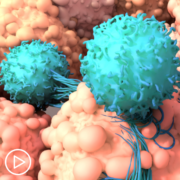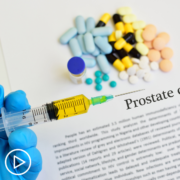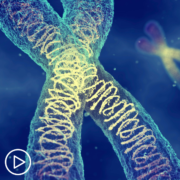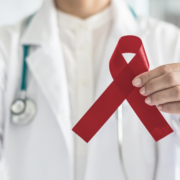How Is CAR T-Cell Therapy Changing Myeloma Care?
How Is CAR T-Cell Therapy Changing Myeloma Care? from Patient Empowerment Network on Vimeo.
Dr. Abdullah Khan discusses how CAR T-cell therapy works to treat myeloma, the currently approved CAR T-cell therapies, and the outcomes related to progression free survival (PFS) for patients with heavily pre-treated myeloma.
Dr. Abdullah Khan is a hematologist specializing in multiple myeloma and plasma cell disorders at the Ohio State University Comprehensive Cancer Center – The James. Dr. Khan is also an assistant professor in the Division of Hematology at The Ohio State University. Learn more about Dr. Khan.
See More from Innovative Myeloma Therapies
Related Resources:
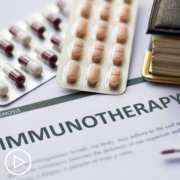
|
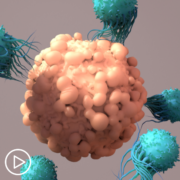
How Is CAR T-Cell Therapy Changing the Myeloma Treatment Landscape? |

|
Transcript:
Katherine:
Let’s talk about CAR T-cell therapy. How is CAR T-cell therapy changing the field?
Dr. Khan:
Myeloma was a little late to the CAR-T game, but we’re very happy it’s here. The two products approved in myeloma are idecabtagene vicleucel, ide-cel for short, and ciltacabtagene autoleucel, or cilta-cel for short.
So, the way CAR Ts work, they are customized T cells for each individual patient. You collect the T cell from the patient with myeloma. You reengineer them in the laboratory to produce proteins on their surface called chimeric antigen receptor. That’s CAR portion of the CAR T therapy. And these CARs recognize and bind specific proteins on the surface of multiple myeloma.
So, these genetically modified T cells are then expanded or multiplied to make millions of cells. They’re sent back to the hospital where they were collected, where the patient is. And they’re infused back into the patient. The hope is that these modified cells, these CAR T cells, will continue to multiply in the patient. And with guidance from that engineered receptor, they will recognize and kill multiple myeloma very effectively.
So, I can provide some numbers to the outcomes of the two approved CAR T cells – CAR T products in multiple myeloma. The first approved was ide-cel in patients with a median of six prior lines of therapy, a single dose of CAR T was able to produce an objective response rate – that’s how many people responded to the treatment – of 73 percent, and the median, the middle person, progressed after 8.8 months of getting this treatment. The other product, cilta-cel, was also studied in patients with a median of six prior lines of therapy, and the objective response rate was an astounding 98 percent.
Katherine:
Wow.
Dr. Khan:
And the median progression-free survival is actually not yet reached. So, these are remarkable results with heavily pre-treated myeloma. And the myeloma community’s very excited to actually bring these treatments to earlier lines of therapy such as a newly diagnosed patient with multiple myeloma.

